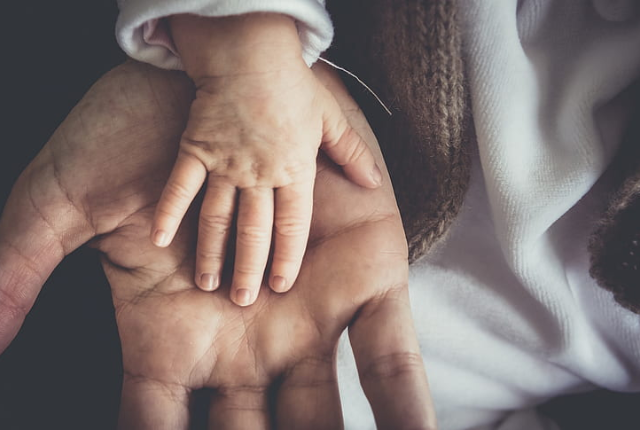Exploring Egg Donation Insights: How Old Do You Have to Be to Donate Eggs?
In the world of reproductive medicine, egg donation has emerged as a profound and selfless way for individuals to contribute to the dreams of aspiring parents. However, before embarking on this meaningful journey, it’s essential to grasp the ins and outs, particularly the question that often arises: How old do you have to be to donate eggs? In this exploration, we’ll delve into the key aspects of egg donation while discussing the age factors for becoming an egg donor, the requirements, and the financial considerations to help you understand the entire process of how to become an egg donor and make an informed decision.
Egg Donation Considerations: Embracing the Journey
There are various aspects of egg donation, including becoming an egg donor, how to donate eggs, egg donor requirements, and the egg retrieval process that we’ll thoroughly explore below. Let’s dive deep into the details, encouraging you to check out the comprehensive insights into this transformative journey:
-
Understanding the Basics of Egg Donation
Egg donation is a remarkable process that involves a generous individual, known as the egg donor, providing her eggs to help individuals or couples struggling with infertility. This act of kindness opens up the possibility for recipients to experience the joys of parenthood. However, the decision to become an egg donor comes with responsibilities and considerations.
-
Becoming an Egg Donor: A Transformative Journey
Embarking on the path of becoming an egg donor is a transformative experience. The process typically involves a thorough screening to ensure the donor’s physical and emotional well-being. Prospective donors often wonder how to donate eggs and what the requirements entail. The journey begins with a comprehensive application, followed by interviews, medical evaluations, and counseling sessions.
-
Deciphering Egg Donor Requirements
Egg donor requirements play a pivotal role in ensuring a safe and successful donation process. While criteria may vary among fertility clinics, common factors include age, overall health, and reproductive history. The question of “How old do you have to be to donate eggs?” is often a primary concern. Generally, donors are typically in their 20s to early 30s, as this age range is associated with higher egg quality and reproductive potential.
-
Exploring the Age Factor: How Old Do You Have to Be to Donate Eggs?
The age at which one can become an egg donor is a critical aspect of the process. Fertility clinics usually set an age limit to optimize the chances of successful egg retrieval and subsequent pregnancy. While the specific age requirement may vary, most clinics prefer donors between the ages of 21 and 32. This age range is considered optimal for ensuring healthy and viable eggs.
-
Compensation Considerations: How Much Do You Get for Donating Eggs?
For many potential egg donors, compensation is a significant consideration. The question of “How much do you get for donating eggs?” is important to address. Compensation varies but is generally offered and can range from a few thousand to several thousand dollars. It’s crucial to note that compensation is provided for the time, effort, and commitment involved in the egg donation process.
-
The Decision to Donate Eggs for Money: A Personal Choice
Choosing to donate eggs for money is a personal decision that involves careful consideration of the physical, emotional, and ethical aspects of the process. While the financial compensation is undoubtedly a positive aspect for many donors, the altruistic motive of helping others build a family remains at the core of the egg donation experience.
How to Donate Eggs: A Comprehensive Stepwise Approach
Embarking on the journey of becoming an egg donor involves a thoughtful and thorough process. Understanding how to donate eggs is pivotal in ensuring a seamless experience for both the donor and the recipients. The initial step includes submitting a comprehensive application and laying the foundation for the subsequent stages.
Prospective egg donors then undergo a series of interviews conducted by fertility specialists. This phase aims to assess the donor’s suitability based on various factors, such as medical history, lifestyle, and personal motivations for becoming an egg donor. Following the interviews, donors undergo medical examinations, including tests to evaluate ovarian reserve and screenings for infectious diseases.
Upon successful completion of these assessments, donors are deemed eligible to proceed with the egg retrieval process which stands as a crucial step in the egg donation journey. The retrieval process is a minor surgical procedure where mature eggs are carefully extracted from the donor’s ovaries. This is typically done under sedation to ensure the donor’s comfort throughout the procedure.
It’s important to note that the entire process, from considering how to become an egg donor to the actual egg retrieval, is conducted with the utmost care and professionalism. Donors play a significant role in providing hope to individuals or couples facing infertility, and their commitment to the process is greatly valued.
Now, as you explore how to donate your eggs, consider the emotional and altruistic aspects alongside the practical steps. Compensation is often a consideration for donors, and it varies based on factors like clinic location and individual agreements. Understanding how much you get for donating eggs is an important aspect of the decision-making process.
Closing Thoughts: The Impact of Egg Donation
Becoming an egg donor is a life-changing decision with far-reaching implications for both the donor and the recipients. Understanding how to donate eggs, what the egg donor requirements are, and the age factor is crucial for those contemplating this incredible journey. Whether motivated by the desire to make a difference or seeking financial compensation, egg donation is an opportunity to play a vital role in the miracle of life. As the saying goes, “Donating eggs is not just giving life, it’s giving a family.”







